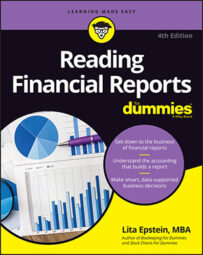Analysts can be useful tools for financial report readers, if you know what information is good information. Analysts, many of whom have completed a grueling testing process that takes at least three years to get the designation Chartered Financial Analyst, serve different roles for different people:
For large investment groups (such as mutual or pension funds): They determine whether a company's stock price accurately reflects the firm's worth and whether the stock fills a particular niche that the group wants to fill in its overall portfolio-management objectives.
For financial institutions: They analyze a company's debt structure and determine whether the company is bringing in enough money to pay its bills, which helps the institution decide whether to loan the firm money and at what interest rate.
For brokerage houses: They provide individual investors analysis about the companies they're considering for their portfolio. Their reports are available to anyone who uses the brokerage house for stock transactions. Unless you have a very large portfolio and can pay an analyst, the analyst doesn't work specifically for you, so you need to read and analyze financial reports yourself.
For bond-rating firms: They review a company's debt structure, financial health, and bill-paying ability to rate the bonds the company issues.
Reports from bond-rating companies are especially helpful because they focus on any debt problems the company may be facing. You can then check out the financial reports yourself and find the red flags more easily.
You may not realize that several types of analysts master various domains of financial analysis. Regardless of what type of analyst you're dealing with, the one fact you can be sure of as an individual investor is that analysts don't work for you unless you're the one paying them for developing the information. They primarily gear their reports to the needs of the people who do pay them.

